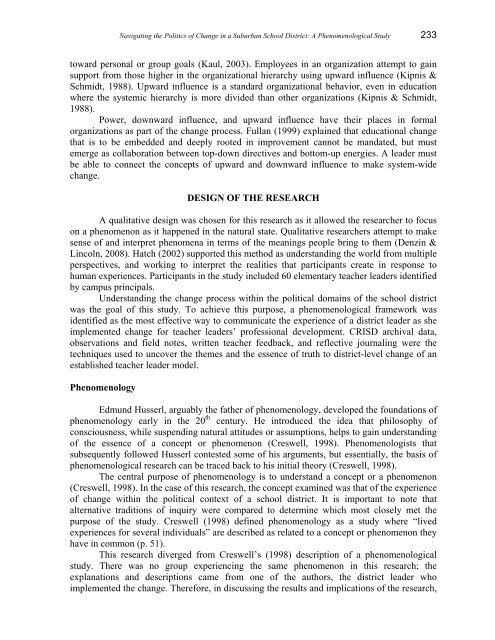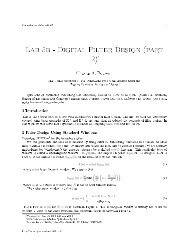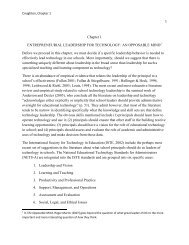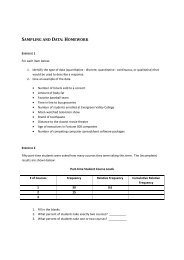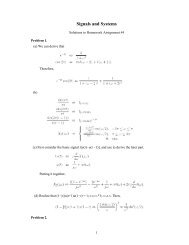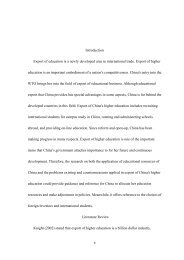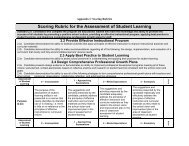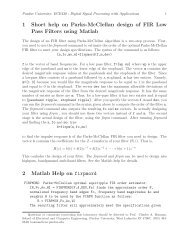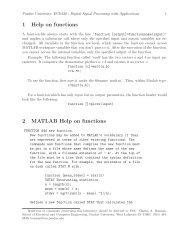Blazing New Trails - Connexions
Blazing New Trails - Connexions
Blazing New Trails - Connexions
You also want an ePaper? Increase the reach of your titles
YUMPU automatically turns print PDFs into web optimized ePapers that Google loves.
Navigating the Politics of Change in a Suburban School District: A Phenomenological Study 233<br />
toward personal or group goals (Kaul, 2003). Employees in an organization attempt to gain<br />
support from those higher in the organizational hierarchy using upward influence (Kipnis &<br />
Schmidt, 1988). Upward influence is a standard organizational behavior, even in education<br />
where the systemic hierarchy is more divided than other organizations (Kipnis & Schmidt,<br />
1988).<br />
Power, downward influence, and upward influence have their places in formal<br />
organizations as part of the change process. Fullan (1999) explained that educational change<br />
that is to be embedded and deeply rooted in improvement cannot be mandated, but must<br />
emerge as collaboration between top-down directives and bottom-up energies. A leader must<br />
be able to connect the concepts of upward and downward influence to make system-wide<br />
change.<br />
DESIGN OF THE RESEARCH<br />
A qualitative design was chosen for this research as it allowed the researcher to focus<br />
on a phenomenon as it happened in the natural state. Qualitative researchers attempt to make<br />
sense of and interpret phenomena in terms of the meanings people bring to them (Denzin &<br />
Lincoln, 2008). Hatch (2002) supported this method as understanding the world from multiple<br />
perspectives, and working to interpret the realities that participants create in response to<br />
human experiences. Participants in the study included 60 elementary teacher leaders identified<br />
by campus principals.<br />
Understanding the change process within the political domains of the school district<br />
was the goal of this study. To achieve this purpose, a phenomenological framework was<br />
identified as the most effective way to communicate the experience of a district leader as she<br />
implemented change for teacher leaders’ professional development. CRISD archival data,<br />
observations and field notes, written teacher feedback, and reflective journaling were the<br />
techniques used to uncover the themes and the essence of truth to district-level change of an<br />
established teacher leader model.<br />
Phenomenology<br />
Edmund Husserl, arguably the father of phenomenology, developed the foundations of<br />
phenomenology early in the 20 th century. He introduced the idea that philosophy of<br />
consciousness, while suspending natural attitudes or assumptions, helps to gain understanding<br />
of the essence of a concept or phenomenon (Creswell, 1998). Phenomenologists that<br />
subsequently followed Husserl contested some of his arguments, but essentially, the basis of<br />
phenomenological research can be traced back to his initial theory (Creswell, 1998).<br />
The central purpose of phenomenology is to understand a concept or a phenomenon<br />
(Creswell, 1998). In the case of this research, the concept examined was that of the experience<br />
of change within the political context of a school district. It is important to note that<br />
alternative traditions of inquiry were compared to determine which most closely met the<br />
purpose of the study. Creswell (1998) defined phenomenology as a study where “lived<br />
experiences for several individuals” are described as related to a concept or phenomenon they<br />
have in common (p. 51).<br />
This research diverged from Creswell’s (1998) description of a phenomenological<br />
study. There was no group experiencing the same phenomenon in this research; the<br />
explanations and descriptions came from one of the authors, the district leader who<br />
implemented the change. Therefore, in discussing the results and implications of the research,


